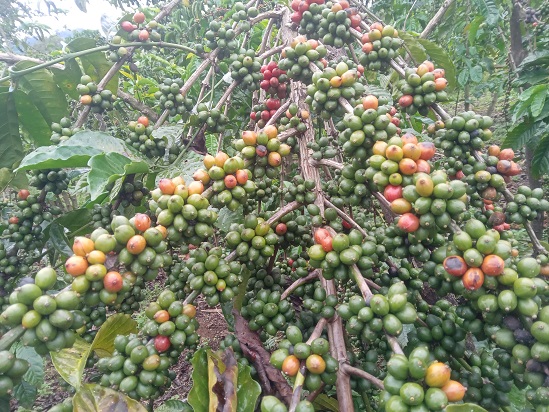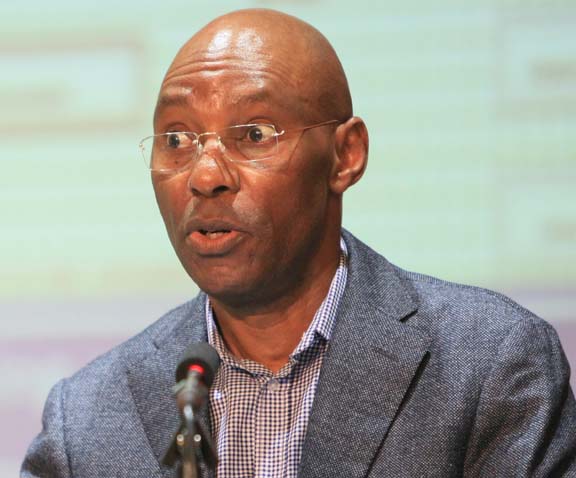Coffee remains Uganda’s leading cash crop and one of the leading foreign exchange earners for the country
Parliament on Wednesday passed the controversial National Coffee (Amendment) Bill, 2024, effectively dissolving the Uganda Coffee Development Authority (UCDA).
The passage of the Bill, which reshapes the country’s coffee regulatory framework, sees the roles and functions of the dissolved UCDA transferred to the Ministry of Agriculture, Animal Industry and Fisheries (MAAIF).
The Bill allows for a three-year transitional period and mandates that the Agriculture Minister drafts regulations within six months to guide the new structure for coffee regulation.
In April this year, the Executive presented to Parliament the Rationalization of Government and Public Expenditure-RAPEX bills that sought to revert over 20 agencies to their mother ministries, with a view of stopping wasteful expenditures by avoiding duplication of roles between ministries and autonomous authorities.
However, coffee stakeholders have severally opposed the merger of UCDA with MAAIF, arguing that coffee is strategic and specialized crop that requires a specialized agency like UCDA.
With the roles and functions of UCDA now assumed by MAAIF, how will the new Department of Coffee under the new MAAIF structure operate? Will it efficiently and effectively serve all coffee stakeholders?
According to the Ministry of Public Service, the technical structure of MAAIF is headed by the Permanent Secretary, who’s the Accounting Officer and is responsible for the overall coordination and management of the Ministry.
Inside the department of Coffee Development
The Ministry will have a number of departments including Department of Coffee Development.
According to Ministry of Public Service’s presentation to the Committee on MAAIF on October 08, 2024, the department will be headed by a Commissioner, who is responsible for supporting, promoting and guiding on sustainable market-oriented coffee production and productivity, value addition and capacity building of the farming communities and value chain participants. The Commissioner reports to the PS of the Ministry.
The coffee department will be composed of two divisions; Division of Coffee Production and Division of Coffee Quality Analysis and Control.
The Commissioner in charge of Coffee Development Department will be assisted by Assistant Commissioner- Coffee Quality Analysis and Control and Assistant Commissioner-Coffee Production.
The Department will also have two Principal Inspectors, Principal Agricultural Engineer, five Senior Agricultural Inspector, two Senior Agricultural Engineer- Infrastructure Audit, two Senior Agricultural Development officers-Technology Development, 11 Senior Agricultural Engineers-Tech Extension Service , 25 Agricultural Inspectors, three Agricultural Engineers, two Laboratory Technicians and two Laboratory Assistants.
The Coffee Department will also have a few Administrative support staff including one Personal Secretary, two Office Attendants and two Drivers.
Key functions of the Coffee Department
Under this new arrangement, the key functions of the coffee department include formulating, reviewing and implementing policies, legislation, standards, plans and strategies on coffee production and marketing, post harvest handling and value addition; providing quality assurance on good agricultural practices and advisory services for enhanced production and productivity of coffee in the identified and mapped production regions; Advocating, facilitating and supporting the provision of improved farm inputs to farming communities and value chain actors for coffee; establishing and ope-rationalizing collaborative mechanisms and networks with the research organizations and other key stakeholders in the coffee value chain development; planning and implementing skilling and capacity development programmes and strategies for farmers and other stakeholders in the coffee value chain; registering/licensing producers, processors and exporters of coffee products; implementing monitoring, evaluation, harmonization and reporting on national programs and projects for the sustainable development of coffee; developing, updating and maintain a national database on production and marketing of coffee; establishing and ensuring efficiency and effectiveness in the management and operations analytical and quality control laboratories for the coffee industry; inspecting and certifying post-harvest, processing and products’ marketing facilities for the coffee products for domestic, regional and international markets; classifying/grading of the coffee products in line with the standards and other requirements for national, regional and international markets; coordinating, providing technical and support supervision to regional and other field offices for enhanced production and productivity of coffee; and coordination of the conduct of the regulatory and quality assurance risk analysis for coffee products for the established and potential regional and international commodity markets.
It’s important to note that under Crop Resources Management, besides the coffee department, the Ministry will also have Department of Crop Production, Department of Crop Protection, Department of Cotton Development and Department of Crop Inspection and Certification.
Under Agribusiness and Extension Services, there will be Department of Agricultural Extension and Skills Development, Department of Agricultural Investment and Enterprises Development and Division of Nutrition, Food Security Education and Awareness.
MAAIF’s Department of Agricultural Engineering and Agriculture Development will have Division of Water for Agricultural Production and Irrigation, Division of Agricultural Mechanization and Infrastructure Development, Division of Soil and Water Conservation, Division of Farmland Planning and Management and Regional Technical Support Unit.
MAAIF will also have a few stand-alone units including the Communications Unit.
It’s understood that coffee extension services will be offered by the existing agricultural extension workers at the sub-county level. Some of the UCDA extension workers will also be absorbed while regional offices will mainly be used for quality control purposes.







I am a Nursery coffee operator. I supplied to the Uganda coffee Development Authority coffee plantlets under purchase order FormA. 039628 .On 13/10/2022. Certificate No O517. Under the names of Fr. Stephen Mudoola.
2000.Plantlets, 6350,Serial no.038629, 2800,Serial No. 039630 2800,serial 039627.2300.setial no. 039631.200 but not paid upto now may Know what procedures Imust follow in order to get my money. I supplied in total 13650×1500=20475000/=.please I need your help as a farmer. I am from Iganga District, Nabitende sub country. Itanda village.
This article is informative, however, it’s regrettable to say that paying UCDA employees is wasting of money, the matter concerns very much the farmers plus all those dealing in coffee business. And it’s so cruel to pass a decision against the will of common people. I hope the Ministry will perform beyond what UCDA has done.
I liked the post. It’s informative